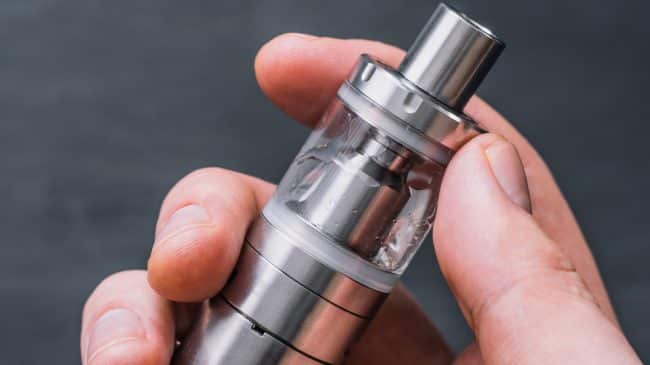|
Federal Updates Reynolds American, Inc. (RAI) has filed 18 modified risk tobacco product (MRTP) applications related to six different styles of Camel snus smokeless tobacco products with the Food and Drug Administration (FDA). If approved, RAI would be allowed to make specific, reduced risk claims to smokers who switch to snus. The FDA has opened a public docket for the applications where comments may be submitted through June 18, 2018. Reason Foundation’s Vice President of Research Julian Morris will be testifying at a meeting of the Tobacco Product Scientific Advisory Committee (TPSAC) on January 24, 2018, regarding the MRTP application from Philip Morris for its I-Quit-Ordinary-Smoking heat not burn product. The public comment period on the MRTP for IQOS remains open. Reason Foundation filed a comment with FDA in support of the application. Reason Foundation’s Brian Fojtik and Guy Bentley commented on the MRTP application. State Updates Thirty-four states have resumed or opened legislative sessions so far in 2018. Legislative session deadlines and calendars for all fifty states can be found here. New York Senator David Carlucci (D) has introduced legislation that would create a new tax on vapor products at a rate of 25 cents per milliliter, more than doubling the cost of most products. Delaware, by classifying vapor products as tobacco products in 2017, imposed a new 5 cents per milliliter vapor tax that became effective on January 1, 2018. Science and Harm Reduction R Street Institute’s Harm Reduction Policy Director Carrie Wade wrote a column at Real Clear Science explaining why vaping is not a “gateway” to smoking. Wade spelled out why the plethora of studies claiming to show a causal relationship between experimentation with vaping and subsequent smoking initiation do not stand-up to scrutiny. “The truth is, we cannot define e-cigarettes as a gateway to combustible cigarette use,” writes Wade. “In fact, population-level data provide evidence directly contradicting the gateway hypothesis: While e-cigarette experimentation tripled between 2013 and 2014, combustible use decreased by 27 percent between 2013 and 2015.” Dr. Konstantinos Farsalinos and Dr. Gene Hillman conducted a systematic review of carbonyl emissions in e-cigarette aerosol, which was published in Frontiers and Physiology. Their review found a variety of different methodologies were used in lab assessments of carbonyl emissions. In their conclusion, the authors state that “it is particularly important that laboratory studies ensure that no dry puffs are generated under laboratory conditions; otherwise testing realistic conditions relevant to true human exposure cannot be ensured and the findings could be misleading and misinformative for consumers and regulators.” Regulation Tobacco Control expert and public health advocate Clive Bates outlined the potential dangers that could flow from heavy-handed regulation of e-liquid flavors. In December, Iowa Attorney General Thomas J. Miller and four public health experts, including Bates, wrote to the FDA Commissioner Scott Gottlieb regarding a framework for considering the appeal of flavors in nicotine products. The letter makes the point that much of the commentary concerning e-liquid flavors is “overly simplistic in presuming that the primary purpose and consequence of offering flavors is to recruit current non-users, especially youth, to nicotine use.” Taxation Americans for Tax Reform (ATR)’s Strategic Initiatives Director Paul Blair has published ATR’s updated vapor tax map to start 2018. The map will continue to be updated with changes as they occur throughout the year. Quotable Quotes “America’s health professionals and their patients could benefit from the availability of products that have the potential to reduce risk” – Dr. Erika Bliss What’s Coming Up FDA’s Tobacco Product Scientific Advisory Committee (TPSAC) will meet to discuss the Philip Morris MRTP application on January 24, 2018, in Silver Spring, MD. Keller and Heckman LLP, a Washington, DC-based firm that specializes in regulatory and FDA issues for vapor product manufacturers, distributors and retailers, will be hosting an E-Vapor and Tobacco Law Symposium in Irvine, California, on February 6-7, 2018. Agenda and registration information for the symposium can be found here. Additional Resources Comment to FDA on Modified Risk Tobacco Product Application The Proposed Tobacco Product Standard for NNN Level in Smokeless Tobacco Should Be Withdrawn The World Health Organization’s Opposition to Tobacco Harm Reduction: A Threat to Public Health? The Vapor Revolution: How Bottom-Up Innovation Is Saving Lives |

© Dreamstime.com

